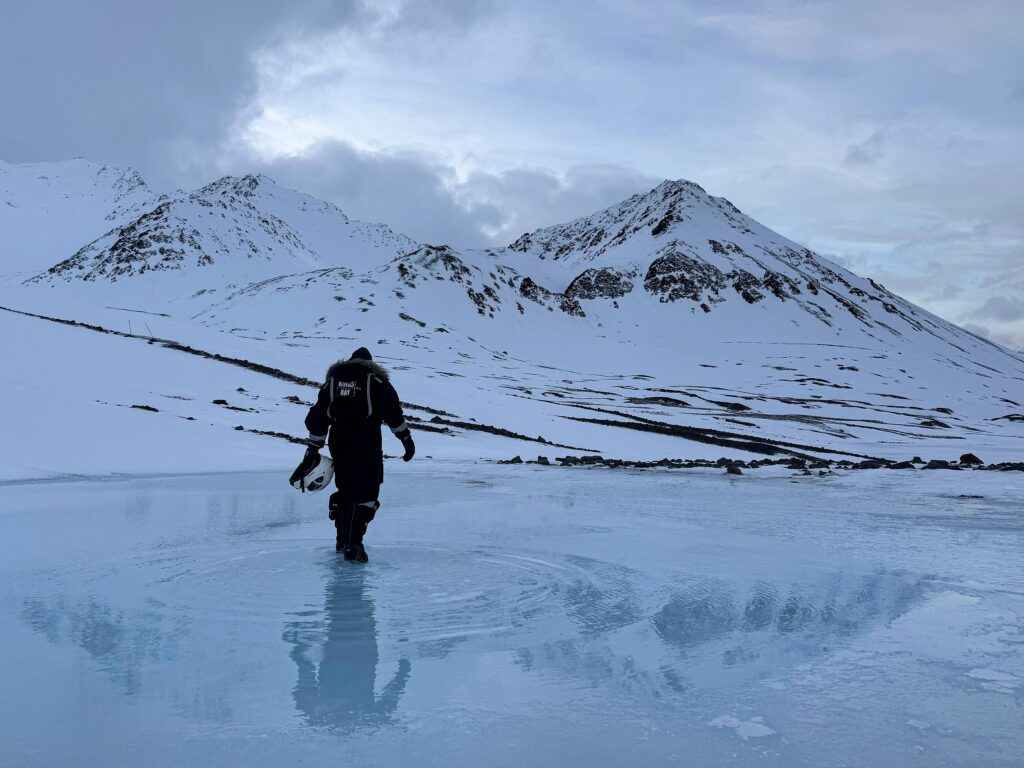Extensive refreezing of meltwater over the exposed tundra in Ny-Ålesund, on February 28th, 2025. Picture by James A. Bradley.
Nature Communications publication: “Winter warming reaches melting point”
Written by: Fieke Rader, Norsk Polarinstitutt
21.07.2025
A Ny-Ålesund collaboration led to the publication of an alarming article “Winter warming reaches melting point” in Nature Communications, published today the 21st of July.
Scientists hosted in Ny-Ålesund by the Natural Environment Research Council from the United Kingdom (NERC) and the National Research Council in Italy (CNR) joined forces in February 2025 to investigate microbes in snow, ice and tundra soils. While they had planned to drive or ski through a thick winter snowpack to reach nearby tundra and glaciers to collect samples, they found themselves faced with rain, ponds of water and bare tundra – and were limited in their fieldwork possibilities. The team wrote down their observations in the form of a journal article, reflecting on the consequences of the melting winter Arctic.

glacier, on February 26th, 2025. Picture by James A. Bradley.
James A. Bradley, one of the corresponding authors of the article, states the following:
“Standing in pools of water at the snout of the glacier, or on bare, green tundra, was shocking and surreal. A thick snowpack covering the landscape vanished within days. We packed all the usual cold-weather gear — thermal layers, thick gloves, insulated down — expecting the harsh Arctic winter conditions we’ve always prepared for. But on the glacier, I was working bare-handed in the rain.”
“Winter warming in the Arctic is no longer an exception – it’s now a recurring feature of a profoundly altered climate system. The Arctic winter is no longer reliably frozen. The extraordinary warmth and rainfall we observed in Svalbard this February are not one-off anomalies – they’re evidence that Arctic winter warming is crossing a melting threshold, i.e. 0°C, and that the assumptions of a continually frozen winter period need revising. Policymaking must shift from reactive to anticipatory strategies.”
Authors of the journal article
James A. Bradley, Laura Molares Moncayo, Gabriella Gallo, Jacopo Brusca, Tessa Viglezio, Jacopo Pasotti & Donato Giovannelli
Did you find what you were looking for?